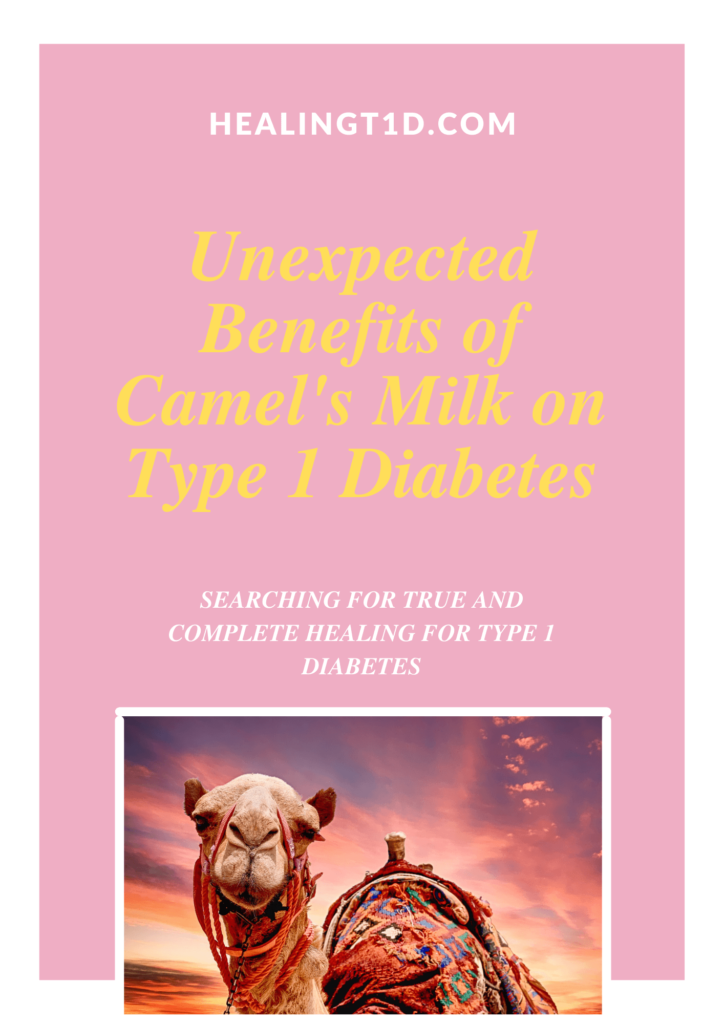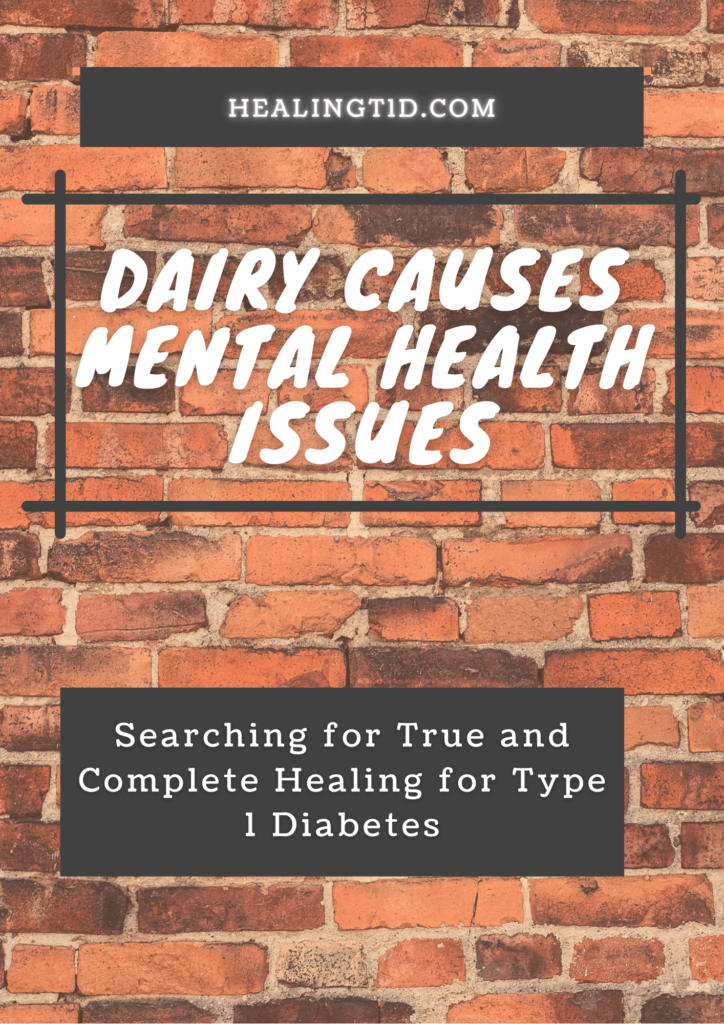Food Choices Can Impact All Levels Of Health

Summary: Discovering a dairy intolerance at the age of 41 reshaped my understanding of its effects beyond digestion. After moving to the Middle East, reducing my dairy intake lowered my mood swings and energy dips, thus revealing a surprising link between dairy and emotional stability. Exploring casein’s role, I ponder its broader implications, including its possible influence on Type 1 Diabetes. Camel’s milk emerges as an alternative with unique benefits but watch for initial blood sugar spikes and potential weight gain.
I LOVE chocolate. And a nice french brie. And milk on my cereal. And… Well, dairy!!
However, the last couple of months have been a great learning curve for me. At 41 years of age, I have FINALLY discovered that I’m dairy intolerant! It would have been nice to discover I’m a secret millionaire but I guess I’ll have to settle for this insight instead!!
Unlike the majority of people who have issues with dairy, I have little to no digestive problems. I have no bloating, no diarrhoea, no nausea, no stomach cramps or pains. In fact, my digestive tract always appears to be sincerely contented. What was not contented, though, was my mood…
Dairy Impacts Mood Stability
 Dairy affects my mood?! I never knew this!! When I moved to the Middle East six months ago, the amount of dairy in my diet dropped considerably. I just didn’t find it so readily available out here. I didn’t really notice how little of it I was eating until I moved into our new home and started reverting to my old way of eating. And, boy, did I get angry… And moody… And crabby… And exhausted… And tearful… And snarky… And, frankly, depressed.
Dairy affects my mood?! I never knew this!! When I moved to the Middle East six months ago, the amount of dairy in my diet dropped considerably. I just didn’t find it so readily available out here. I didn’t really notice how little of it I was eating until I moved into our new home and started reverting to my old way of eating. And, boy, did I get angry… And moody… And crabby… And exhausted… And tearful… And snarky… And, frankly, depressed.
But was this really a thing?? Having family members with debilitating IBS, which was always worse with dairy consumption, I thought I knew all there was to know about reactions to dairy. But it turns out that I didn’t know! So I did what all people lacking knowledge do… I hit Google!! And here is what I discovered…
Dairy’s Impacts On The Brain
The first thing I tripped across in my Google search was an article in the New York Post entitled “Your cheese addiction could be making you an emotional wreck“. It referenced a nutritional therapist Kay Ali, who stated that the protein ‘casein’, which is found in dairy, is associated with increased inflammation in the brain. This inflammation can then lead to depression.
I found this insight really interesting. The article did not reference any academic literature so I took to the academic journals to find out more. Unfortunately, I could not find anything to support this conclusion. Instead, I found an article suggesting that milk casein can improve stress in a mouse model of human behaviour. So the jury’s out on the association between dairy, inflammation and depression at the moment.
Whilst unsupported, this article did give me food for thought (pun intended!). My experience of mood swings as a result of eating dairy foodstuffs is not isolated. Anecdotal evidence of this link abounds with bloggers like ‘Danny + Mara‘ and Heather McGlees from ‘One Green Planet’ also highlighting the same issue.
A1 Beta-Casein And Type 1 Diabetes
The nutritional therapist Kay Ali (referenced above) specifically mentioned that it is the protein ‘casein’ that is associated with increased inflammation, and therefore depression, in the brain. This is worth repeating for emphasis because I think it holds something highly valuable for me on my healing journey.
I first learnt about casein when I became pregnant with my daughter in 2013. At that time, I researched factors that may affect the potential development of Type 1 Diabetes in children. Type 1 Diabetes has a strong genetic inheritance in the female side of my family so I wanted to do what I could to prevent and/or delay any onset in my daughter. I found a series of articles that highlighted how the protein A1 beta-casein, found in cow’s milk, can be a triggering factor for T1D in individuals with genetic susceptibilities [see this article and this article as examples]. Therefore, for the first six months of my daughter’s life, I gave her no dairy, neither through my breast milk nor through top-up feeds of formula milk (I found a dairy-free version to give her instead).
Encountering casein in a different yet still T1D-relevant context now leaves me wondering about a potential, more general link between dairy intolerance (A1 beta-casein intolerance…?) and T1D. Is my body telling me to lay off the dairy because of a body-wide intolerance to it…? As of now, I just don’t know the answer to this. But I do know that dairy does not suit me, so the avoidance of it in my diet makes sense to me anyway.
BONUS: Camel Milk!
So what if you are thinking of giving up cow’s milk but you really, really like a cup of tea or coffee with milk? Or if you can’t do without that bowl of cereal and milk in the morning? I have an answer for you… Camel’s milk!
Camel milk lacks the beta-casein that cow’s milk contains. So this is a great substitute for avoiding the whole beta-casein issue. But, the superpowers of camel’s milk seem to also go beyond this…
Agrawal and colleagues have undertaken extensive research on the impact of camel’s milk on glycaemic control for patients with Type 1 Diabetes. They have found that camel’s milk is safe and can be used to improve long-term glycaemic control, as evidenced by improved HbA1c’s and reduced doses of insulin (see here, here, and here!). It appears that this may be attributable to the fact that camel’s milk contains protein that have a structure similar to insulin molecules and this similarity may be responsible for the significant impacts on blood sugar levels. Furthermore, for new Type 1 Diabetics, consumption of camel’s milk seemed to aid the maintenance of residual beta-cell function.
And all this was achieved purely by drinking 500 ml of camel’s milk per day. Not bad, eh?!
Words Of Warning…
With such beneficial effects appearing achievable with camel’s milk, I thought I would give it a go. I have to say that, for the first few days, my blood sugars SOARED with the addition of camel’s milk in my diet. Whilst it may have good long-term consequences for diabetes management, in the short-term, it has been playing havoc with my blood sugar control. This has meant I have had to increase my insulin doses. I hope, as time goes on, I will start to witness the build-up of beneficial effects but these early days have no been without consequences! The studies appeared to be undertaken over periods of three months or longer so I wonder if this may be more of a long-term effect.
Furthermore, I noticed that a large number of these studies on camel’s milk showed a statistically significant increase in the Body Mass Index (BMI) of the study participants. Therefore, the extra calories consumed with the camel’s milk appear to cause weight gain. This has left me with two thoughts. Firstly, this is obviously not ideal when I want to decrease my insulin requirements since excess weight increases insulin resistance and therefore is unlikely to regress complete healing.
Secondly, these studies, whilst demonstrating weight gain in the participants, still showed a marked decrease in total insulin intake. Therefore, even with additional weight gain, camel’s milk (assuming all other variables, such as the Hawthorne Effect, were adequately controlled for) drastically improves insulin sensitivity. That suggests to me that it has a very robust and extremely powerful effect on blood sugars. Therefore, I am starting with smaller quantities of camel’s milk and will be working up to consuming the full 500 ml per day.



GET HEALINGT1D’S FUTURE ARTICLES IN YOUR INBOX!
Get the latest musings and findings straight to your email inbox.

Natalie is a blogger with Type 1 Diabetes. Natalie's special gifts are questioning the status quo and being a rebel. She is using these gifts to question medical 'knowledge' and find a true cure for Type 1 Diabetes.
Recent Comments:
- Sandra on Nutrition Update
- latestModapks on Daniel Darkes
- Natalie Leader on Daniel Darkes
- Senna on Daniel Darkes
- Sandra on High Blood Pressure





